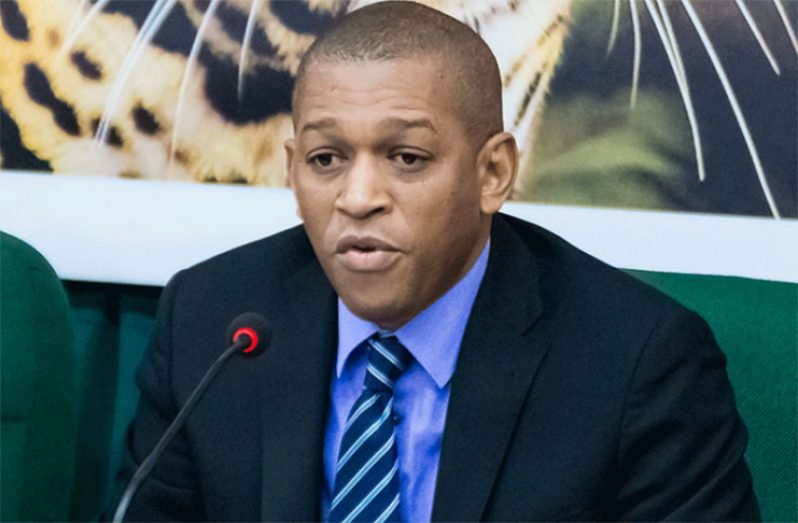– Dr Bynoe says local storage requires planning, not possible immediately
By Lisa Hamilton
AS global oil prices slide, Director of the Department of Energy (DE), Dr. Mark Bynoe, says it may be advantageous that Guyana, still new to the market, had not become dependent upon the commodity.
He spoke to this newspaper on Tuesday, providing an update on how the Department has been monitoring the situation, even as it remains engaged with its sister agencies and the operators.
“No shipment from the Liza Destiny has been affected due to COVID-19 presently. However, going forward, as entities begin to run out of storage capacity due to an over-supplied market and depressed demand, shipments could be impacted,” he stated.
TOO MUCH OIL
It has been widely reported in the international media that the global oil market is oversupplied and almost out of storage —- one of the grave economic effects of the pandemic.
In an article titled ‘Too Much Oil: How a Barrel Came to Be Worth Less Than Nothing’, the New York Times reported that the world has an estimated storage capacity for 6.8 billion barrels and nearly 60 percent is filled.
Asked whether Guyana is considering storage for its crude, which might become necessary, Dr. Bynoe said that this may not be immediately possible for the country, and, in any case, would require serious planning.
“For Guyana to consider storage on shore that would most likely involve bringing a pipeline to shore that will involve billions of dollars as most vessels will be too large to enter our waters if we are to derive scale economies. Any investment will have to look at the relative costs and benefits,” he said.
“Guyana pre-sold its first three cargoes to Royal Dutch Shell which is likely to run up to July of this year. For those cargoes, storage from Guyana’s side is not an issue. However, it is instructive to note that, currently, there is limited storage capacity globally with countries hiring Very Large Crude Carriers (VLCCs) that can hold between 2 – 2.2 million barrels of crude, as storage facilities. These are going at premium rates at the moment because of the substantial demand for these vessels and limited storage options elsewhere.”
MUCH UNCERTAINTY
Guyana has thus far received US$55 million for its first lift/ the country’s first million barrels of oil, sold to Royal Dutch Shell in February. The money has been deposited in the Natural Resources Fund (NRF), which is in the United States of America’s Federal Reserve Bank.
While local media has reported Minister of Finance, Winston Jordan, as estimating that Guyana’s revenue from its next sale could be as low as US$20M, Dr. Bynoe said the total loss Guyana will face is unknown. It is also undetermined, at this time, when Guyana will again benefit from profitable oil prices.
The DE Director explained Guyana’s oil entitlements are sold on a cargo-by-cargo basis, with price determined on dated Brent 10 days after the bill of lading. Meanwhile, profitable prices depend on what it costs to produce a barrel of oil.
He stated: “As such, profitability varies from country to country and field to field. Even under the current situation Guyana’s oil is still profitable. [But] when are we likely to see oil at US$60 al barrel again is any body’s guess.”
On December 20, 2019, Guyana became an oil-producing nation. Even before then, the DE had been working to ensure that the country is in the best position to manage and benefit from its oil and gas resources.
Dr. Bynoe said that, as any new Department, navigating these times remains challenging. He said that the recent crisis has impacted the DE’s capacity building and outreach efforts and, although working from home and flexible working hours are being practised, there are other logistical challenges the DE is working to overcome.
Despite the reality, he said that the challenges also provide opportunities for the Department to utilize technology, streamline operations and increase operational and cost efficiencies to allow for more revenue going into Guyana’s coffers.




.jpg)









